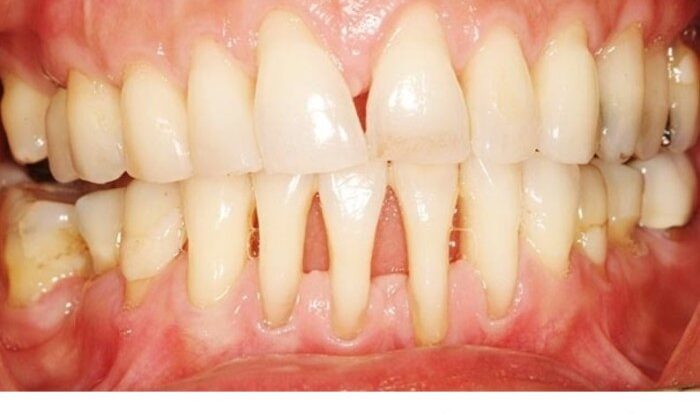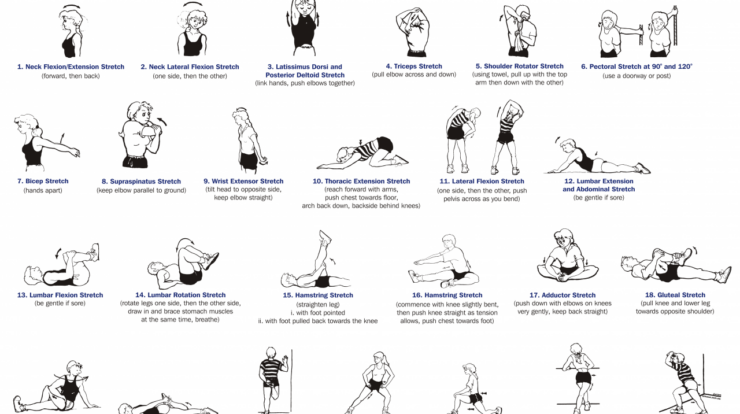
If you’re battling gum disease, you might think a trip to the dentist is your only option. But hold up! There are ways to tackle it from the comfort of your own bathroom. Join us as we explore how to cure gum disease without a dentist, using natural remedies, home care techniques, and lifestyle tweaks.
Get ready to give your gums the TLC they deserve!
Whether you’re a gum disease newbie or a seasoned pro, this guide will arm you with the knowledge and tips to say goodbye to those pesky gum problems.
Natural Remedies for Gum Disease: How To Cure Gum Disease Without A Dentist
Natural remedies offer potential alternatives or adjuncts to conventional dental treatments for gum disease. While their effectiveness may vary, some natural approaches have shown promising results.
Salt Water Rinses
Salt water rinses are a simple and effective way to reduce inflammation and promote healing in the gums. Mix 1/2 teaspoon of salt in 8 ounces of warm water and rinse your mouth for 30 seconds twice daily.
While there are many ways to cure gum disease without a dentist, such as using over-the-counter mouthwashes or flossing regularly, the most effective way is to visit a professional. Santa Clara Mecconline offers a variety of dental services, including gum disease treatment.
Their experienced dentists can help you get your gums healthy again and keep them that way.
Turmeric, How to cure gum disease without a dentist
Turmeric contains curcumin, a compound with anti-inflammatory and antibacterial properties. To use turmeric, mix 1/2 teaspoon of turmeric powder with a little water to form a paste. Apply the paste to your gums and leave it on for 5-10 minutes before rinsing.
Gum disease is a common problem that can lead to serious health issues if left untreated. While it’s always best to see a dentist for professional treatment, there are some things you can do at home to help cure gum disease.
You can find more information on how to cure gum disease without a dentist online. These methods can help reduce inflammation, kill bacteria, and promote healing. If you’re experiencing any symptoms of gum disease, it’s important to take action as soon as possible to prevent further damage.
Tea Tree Oil
Tea tree oil has antibacterial and antifungal properties. Mix 2-3 drops of tea tree oil in 8 ounces of water and rinse your mouth for 30 seconds. Do not swallow the solution.
Note:Natural remedies can be beneficial, but they are not a substitute for professional dental care. It is essential to consult with a dentist for proper diagnosis and treatment.
Home Care Techniques for Gum Disease Prevention
Gum disease, also known as periodontal disease, is a common problem that affects millions of people worldwide. It is caused by the buildup of plaque and bacteria on the teeth and gums. If left untreated, gum disease can lead to serious problems, including tooth loss.
It’s not always easy to get to the dentist, but that doesn’t mean you have to suffer from gum disease. There are a number of things you can do at home to help cure gum disease without a dentist. One of the most important things is to practice good oral hygiene.
This means brushing your teeth twice a day, flossing once a day, and using a mouthwash. You should also try to avoid sugary foods and drinks, as these can contribute to gum disease. Here are some other tips that may help you cure gum disease without a dentist.
However, there are a number of things you can do at home to help prevent and treat gum disease.
One of the most important things you can do is to brush and floss your teeth regularly. Brushing your teeth twice a day with a soft-bristled toothbrush and fluoride toothpaste will help to remove plaque and bacteria from your teeth and gums.
Flossing once a day will help to remove plaque and bacteria from between your teeth, where your toothbrush can’t reach.
In addition to brushing and flossing, there are a number of other things you can do to help prevent and treat gum disease. These include:
Using Antimicrobial Mouthwashes
Antimicrobial mouthwashes can help to kill bacteria in your mouth and reduce inflammation. They are available over-the-counter and can be used twice a day.
Using Dental Floss
Dental floss is a thin, string-like material that is used to clean between your teeth. It is important to use dental floss at least once a day to remove plaque and bacteria from between your teeth, where your toothbrush can’t reach.
Gum disease is a common problem that can lead to serious health issues if left untreated. While it’s best to see a dentist for professional treatment, there are some things you can do at home to help cure gum disease without a dentist.
Here are some tips on how to cure gum disease without a dentist . By following these tips, you can help improve your oral health and prevent gum disease from getting worse.
Dietary Modifications for Gum Health
Gum disease is a common problem that can lead to serious health issues if left untreated. While there are many factors that contribute to gum disease, diet plays a significant role. Eating a healthy diet can help to prevent gum disease and improve oral health.
Foods that Promote Gum Health
- Fruits and vegetables: Fruits and vegetables are high in vitamins and minerals, which are essential for gum health. Vitamin C is particularly important, as it helps to strengthen the gums and prevent bleeding.
- Dairy products: Dairy products are a good source of calcium, which is essential for strong teeth and bones. Calcium also helps to neutralize acids in the mouth, which can help to prevent cavities and gum disease.
- Whole grains: Whole grains are a good source of fiber, which helps to clean the teeth and gums. Fiber also helps to promote saliva production, which is important for keeping the mouth clean and free of bacteria.
Foods that Can Contribute to Gum Inflammation
- Sugary foods: Sugary foods can feed the bacteria in the mouth, which can lead to plaque formation and gum disease. Plaque is a sticky film that forms on the teeth and gums, and it can irritate the gums and cause inflammation.
- Acidic foods: Acidic foods can erode the enamel on the teeth, which can make them more susceptible to cavities and gum disease. Acidic foods also can irritate the gums.
- Sticky foods: Sticky foods can stick to the teeth and gums, which can provide a breeding ground for bacteria. Bacteria can produce acids that can damage the teeth and gums.
Lifestyle Factors Impacting Gum Disease
Lifestyle choices significantly influence oral health, including gum disease. Smoking, stress, and sleep deprivation are key factors that can exacerbate gum problems.
Smoking
Smoking damages the immune system, impairing its ability to fight gum disease. It also reduces blood flow to the gums, hindering their healing and repair. To reduce the risk of gum disease, quitting smoking is crucial.
Hey, if you’re struggling with gum disease, don’t worry, you can cure it without a dentist. Check out this article for some helpful tips. It’ll guide you through the process of curing gum disease at home, saving you time and money.
Stress
Chronic stress can weaken the immune system, making the body more susceptible to infections, including gum disease. Stress management techniques such as exercise, yoga, or meditation can help reduce stress levels and improve overall health.
Sleep Deprivation
Lack of sleep can disrupt the body’s natural healing processes, including those in the gums. Aim for 7-9 hours of quality sleep each night to support immune function and gum health.
When to Seek Professional Help
Ignoring gum disease can lead to severe complications, so it’s crucial to seek professional help when necessary. Recognizing the signs and symptoms of advanced gum disease is essential for early intervention.
Signs and Symptoms of Severe Gum Disease
- Persistent bleeding gums, even with gentle brushing or flossing
- Receding gums, exposing the roots of teeth
- Loose or shifting teeth
- Pus between teeth and gums
- Pain or discomfort while chewing
- Bad breath or a persistent metallic taste
- Swollen, red, or tender gums
- Formation of deep pockets between teeth and gums
If you experience any of these symptoms, it’s vital to schedule an appointment with a dental professional as soon as possible. Early intervention can prevent the progression of gum disease and minimize the risk of complications.
Closing Summary

So, there you have it—a comprehensive guide to curing gum disease without a dentist. Remember, prevention is always better than cure, so make these tips a part of your daily routine. And if you’re still struggling, don’t hesitate to seek professional help.
With a little effort and consistency, you can restore your gum health and flash that winning smile with confidence!
FAQ Insights
Can I cure gum disease completely on my own?
While home remedies and lifestyle changes can improve gum health, it’s crucial to consult a dentist for proper diagnosis and treatment. Severe gum disease may require professional intervention.
How long does it take to cure gum disease naturally?
The duration varies depending on the severity of the disease and your adherence to the treatment plan. Mild cases may improve within a few weeks, while more advanced cases may take several months.
Is it possible to prevent gum disease?
Absolutely! Regular brushing, flossing, and maintaining good oral hygiene go a long way in preventing gum disease. Quitting smoking, reducing stress, and eating a healthy diet also contribute to gum health.





